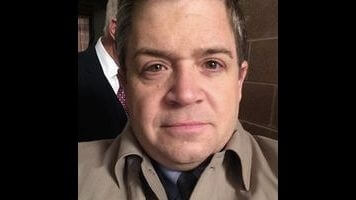Between 1995 and 1999, Oswalt was a regular at the New Beverly Cinema. Actually, “regular” doesn’t quite describe the man’s devotion: As detailed in his book, Oswalt spent as many nights as he could at the theater—regularly checking off the movies that played there against those listed in various film guides—between stand-up gigs and his day job as a writer for MADtv. Though Oswalt’s film knowledge is near-encyclopedic, his book is a humble, self-effacing account of a man who, by his own admission, spends too much time in the dark. “Movies,” he writes, “are an enhancement to life. The way a glass of wine complements a dinner. I’m the other way around.”
Oswalt’s struggle to reverse that dichotomy makes for a funny, emotionally rewarding coming-of-age story. When the book starts, Oswalt is nothing short of a movie addict, a newly obsessed film freak who tries to cram in as many New Beverly viewings as possible (as evidenced by images from Oswalt’s calendar from the time, which lists appointments with, say, Jean Cocteau’s Beauty And The Beast alongside dates at the Largo, the Irvine Improv, and other comedy clubs).
Silver Screen Fiend has its faults. The book’s structure isn’t always clear, which sometimes makes for an unwieldy read, and a 33-page appendix listing every movie he saw over four years, while interesting at a glance, ultimately feels like padding. But Oswalt’s ample writing talents push the narrative past these shortcomings (a section with no punctuation depicting Oswalt’s thoughts while bombing onstage is particularly vivid). His decision to write almost entirely in the present tense makes the memoir feel immediate and vital.
Oswalt’s memoir is dedicated to longtime New Beverly owner and curator Sherman Torgan, Silver Screen Fiend’s real protagonist, the man supplying the thing that fills Oswalt with such passion over the book’s five years. (A lovely, funny eulogy for Torgan, who died in 2007, is included at the end of the book.) The book’s resolution, which includes the birth of Oswalt’s daughter, makes clear that the story is a kind of fable about the dangers of immersion in any cultural interest. By the end, when Oswalt stumbles out of the dark and squints in the light of his new life, it’s enough to make any reader seek out the many films that made him hibernate in the first place.


 Keep scrolling for more great stories from A.V. Club.
Keep scrolling for more great stories from A.V. Club.